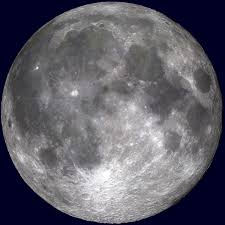The Fascinating World of Moons: Importance and Discoveries

Introduction to Moons
Moons, natural satellites orbiting planets, hold a key position in our understanding of the universe. With over 200 known moons in our solar system, they provide insights into planetary formation, geological activity, and even the potential for extraterrestrial life. Understanding moons is crucial not only for astronomy but also for future space exploration and habitability assessments.
Current Discoveries and Studies
Recent advancements in technology and space exploration have led to significant discoveries pertaining to various moons. Notably, NASA’s Lunar Reconnaissance Orbiter has been instrumental in mapping the Moon’s surface in high detail, revealing features that suggest a complex geological history. Meanwhile, the Juno mission has been studying Jupiter’s moons, such as Europa and Ganymede, intriguing scientists due to their potential subsurface oceans.
In 2021, the European Space Agency’s JUICE (JUpiter ICy moons Explorer) mission was announced, which aims to study the icy moons of Jupiter, focusing on their habitability. Furthermore, scientists continue to study Saturn’s moon Enceladus, which has shown geysers spewing water vapor, hinting at possible microbial life in its subsurface ocean. These explorations not only increase our understanding of moons but also enrich our knowledge of planetary systems.
The Importance of Moons for the Future
The significance of moons extends beyond current discoveries. As humanity eyes the stars, moons could play a vital role in future exploration. They might serve as stopping points or bases for deep-space missions, offering valuable resources such as water ice and raw materials. Moreover, studying moons contributes to our understanding of Earth’s own moon, which influences tides and stabilises the planet’s climate.
Conclusion: The Quest Continues
As research on moons continues to evolve, the mysteries surrounding them may unveil profound truths about our place in the universe. Significant missions are on the horizon, aimed not only at understanding these celestial bodies but also at determining their potential for hosting life. The study of moons presents a unique intersection of science and exploration, inviting both public interest and scientific scrutiny in the years to come, and will undoubtedly shape the future of space exploration.









